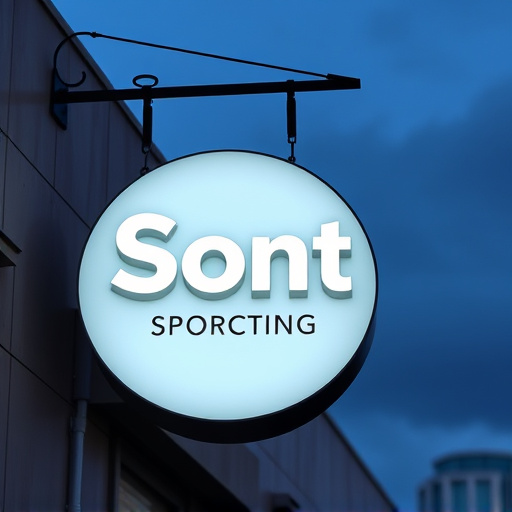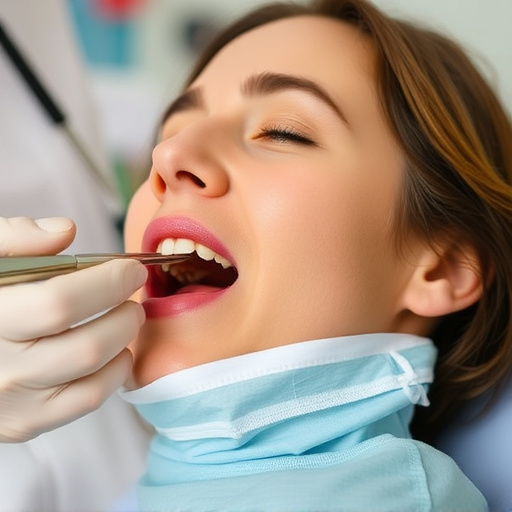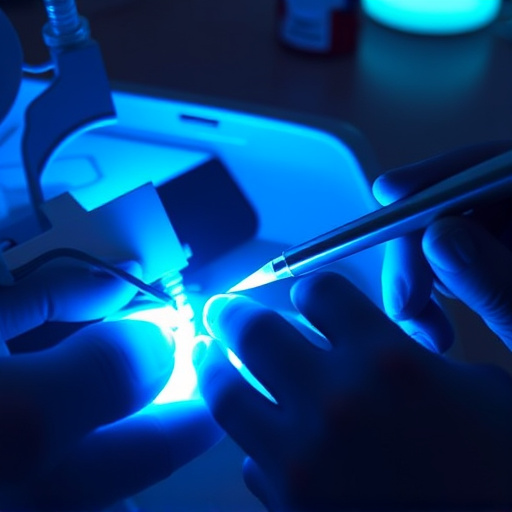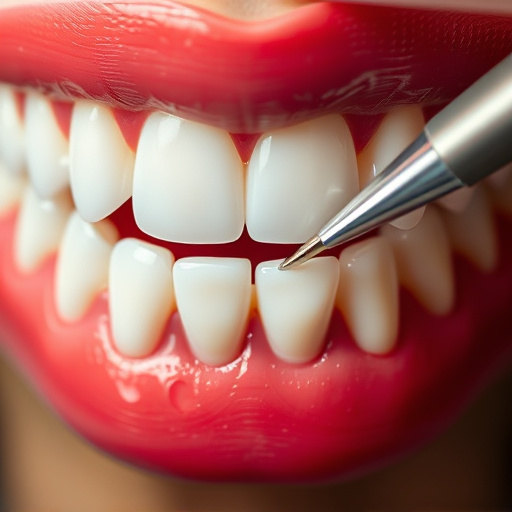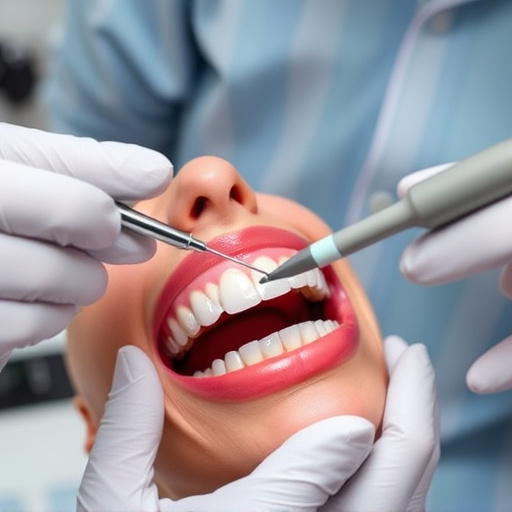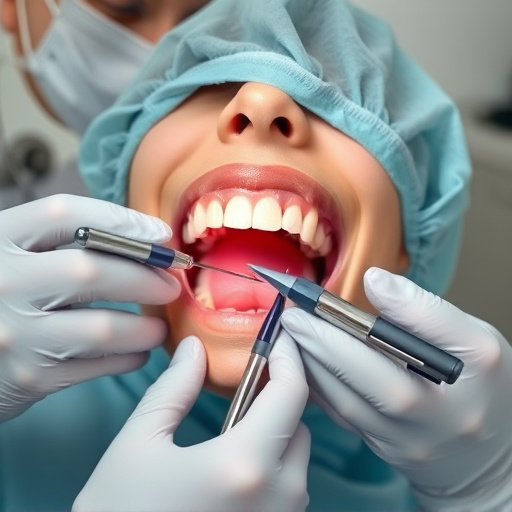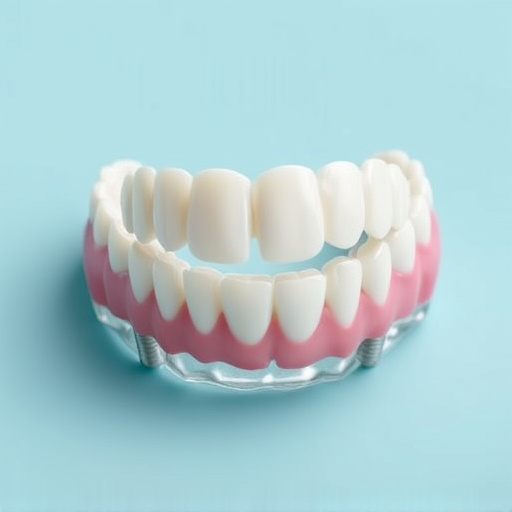Early detection of oral cancer is key to better treatment outcomes. Regular dental cleanings include thorough examinations for unusual growths or lesions. Overlooking common symptoms like hoarseness or difficulty swallowing can delay diagnosis. Advanced screening technologies like VELscope and OralCDx enhance diagnostic accuracy, revealing subtle mouth abnormalities indicative of cancerous cells. Integrating these screenings into routine check-ups allows dental professionals to proactively detect oral cancer early through biochemical changes.
Oral cancer screening is a vital tool in detecting hidden symptoms, often overlooked yet critical for early treatment. This article delves into the significance of identifying oral cancer at its earliest stages. We explore common signs and symptoms that may indicate a deeper issue, as well as the advanced technologies revolutionizing screening processes. By understanding these elements, individuals can actively participate in their health management and ensure timely interventions. Early detection through oral cancer screening is key to improving outcomes and saving lives.
- Understanding the Importance of Early Detection
- Common Symptoms Often Overlooked
- The Role of Advanced Screening Technologies
Understanding the Importance of Early Detection
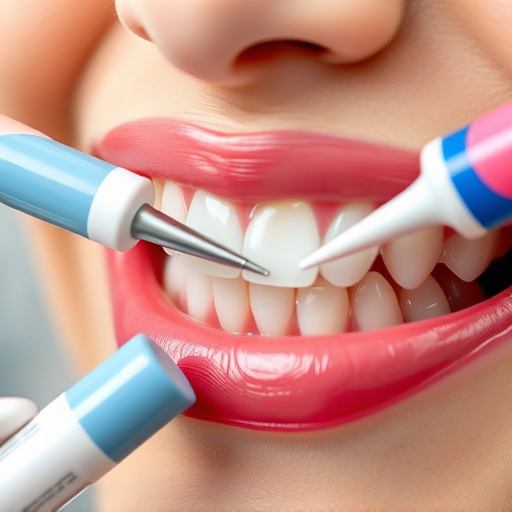
Early detection is key when it comes to oral cancer, as timely intervention can significantly improve treatment outcomes. Oral cancer screening plays a vital role in this process by allowing dental professionals to identify potential signs and symptoms at an early stage. This is crucial because many individuals with oral cancer show no visible or noticeable symptoms in the initial phases. By incorporating regular dental cleanings into your routine, you enable your dentist to thoroughly examine your mouth for any unusual growths, lesions, or changes that might indicate cancerous cells.
While dental fillings and other cosmetic procedures are essential for maintaining oral health, regular screenings should not be overlooked. Oral cancer screening is a simple yet powerful tool that can save lives by ensuring that even subtle anomalies are detected promptly. This proactive approach to oral healthcare encourages individuals to stay vigilant about their mouth’s health, encouraging them to seek emergency dental care if any concerning changes arise.
Common Symptoms Often Overlooked
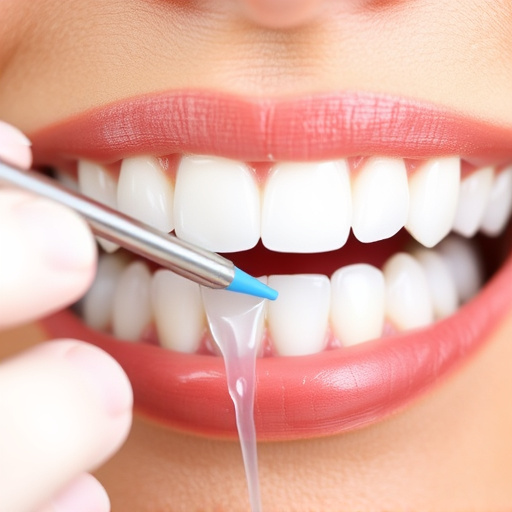
Many people overlook common symptoms that could be signs of oral cancer, often because they are subtle and easy to miss. Symptoms such as persistent hoarseness or changes in voice, difficulty swallowing, or a sore throat can sometimes be attributed to less serious conditions. Additionally, visible changes like red or white patches in the mouth, unusual bleeding, or lumps/swelling in the jaw or neck might go unnoticed or be dismissed as minor issues. These overlooked signs are why regular oral cancer screening is so crucial—it enables early detection when treatment outcomes are generally more favorable.
While some symptoms may prompt individuals to visit their dentists, others can remain hidden for extended periods. This is especially true for those who don’t realize that certain habits like tobacco use or excessive alcohol consumption can increase the risk of oral cancer. Even seemingly unrelated issues like chronic bad breath (halitosis) could indicate an underlying problem. Therefore, an oral cancer screening, often as part of a routine dental check-up, becomes vital in identifying these hidden symptoms and promoting overall mouth health.
The Role of Advanced Screening Technologies
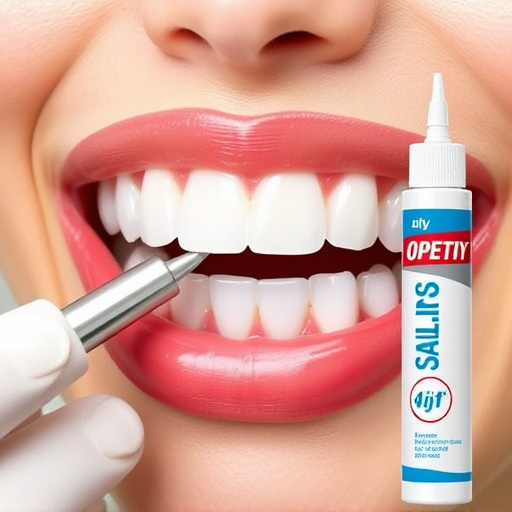
Advanced screening technologies play a pivotal role in modern oral cancer detection, significantly enhancing diagnostic accuracy and early identification rates. Tools like VELscope and OralCDx, for instance, utilize specialized lighting and imaging techniques to reveal subtle abnormalities in the mouth that may indicate cancerous or precancerous cells. These non-invasive methods allow dentists, who serve as your trusted allies in family dentistry and restorative dentistry, to conduct quick and efficient screenings during routine check-ups.
By integrating advanced screening technologies into their practices, dental professionals can go beyond visual examinations with tools that detect specific biochemical changes associated with oral cancer. This proactive approach not only saves lives but also simplifies the process of tooth repair by catching potential issues early when treatment is most effective.
Oral cancer screening is a powerful tool in detecting hidden symptoms early, which can significantly improve treatment outcomes. By being aware of common overlooked signs and utilizing advanced technologies, individuals can take proactive steps towards maintaining their oral health. Regular check-ups and staying informed about potential risks are key to ensuring any abnormalities are caught promptly, ultimately saving lives. Oral cancer screening is a simple yet vital process that everyone should consider as part of their routine healthcare regimen.
